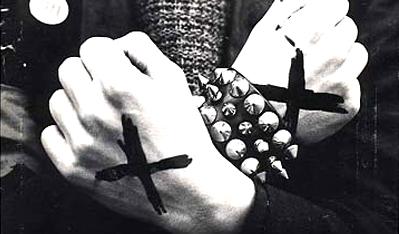The other video showcased a performance by John Williams, arguably the greatest film composer of all time. In the video, he performed a Nikita Koshkin piece inspired by Poe's "The Fall of the House of Usher": "Usher Waltz, Op. 29."
To me, music and literature go hand-in-hand: both are expressive forms of art that are capable of creating atmosphere, changing the mood of a listener or a reader, and even broadening or radically altering one's understanding of the world.
To me, music and literature go hand-in-hand: both are expressive forms of art that are capable of creating atmosphere, changing the mood of a listener or a reader, and even broadening or radically altering one's understanding of the world.
To borrow a notion from Thoreau and other practitioners of civil disobedience, tension can promote positive change.
 |
| King subscribed to this belief. What more do you need to know? |
Thoreau was angered by slavery, consumerism, and greed, and he focused his energies in his writings and his own temporary retreat from society. His entire being came to represent a core of beliefs that can be generally described as transcendentalism.
Where are the Henry David Thoreau's now? In my opinion, they still exist, and they still use art to attract like-minded individuals.
The man holding the guitar is Ian Mackaye. He was the front-man for the influential D.C. hardcore band, Minor Threat. He later went on to form, Fugazi, a post-hardcore band known for their unflinching devotion to independence and DIY culture.
Ian, the son of a preacher, always subscribed to a set of strong beliefs. As a teenager, he and his band-mates in Minor Threat spread the ideals of Straight Edge, a movement that arose in reaction to the overly self-indulgent and self-destructive aspects of punk rock and rock and roll. Practitioners of Straight Edge focus on clean living and avoid drugs and alcohol completely.
Ian's political mindset also influenced the music that he made with Fugazi in the late 1980's up until the early 2000's. Here's one of my favorite Fugazi tunes, "Merchandise." Listen to the song and its lyrics. Is this transcendentalism for a new era?
When we have nothing left to give
There will be no reason for us to live
But when we have nothing left to lose
You will have nothing left to use
We owe you nothing you have no control
Merchandise keeps us in line
Common sense says it's by design
What could a businessman ever want more
than to have us sucking in his store
We owe you nothing
You have no control
You are not what you own

